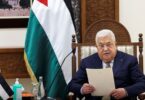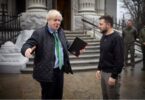Alexander Seale
What’s behind Emmanuel Macron’s courting of US President Donald Trump? At odds on a number of issues outside the sphere of Syria and the historical alliance of the two nations, this doesn’t seem like a natural friendship
French President Emmanuel Macron arrived in Washington on Monday for a three-day state visit, which is likely to highlight some of the deep differences that France has with the United States, especially on Iran, climate change and trade.
Prior to his trip, Macron gave an interview to Fox News – which has been accused of biased reporting and being “the favourite channel of the US president.”
In the interview the French president compared his May 2017 election to his American counterpart’s election. “Both of us are probably the maverick of the systems on both sides,” Macron said. “I think President Trump’s election was unexpected in your country and probably my election was unexpected in my country. And we are not part of the classical political system.”
When the two men first met each other at the NATO Summit in Brussels, the atmosphere seemed awkward. It was of course Emmanuel Macron’s first meeting with several international heads of state. The young man wasn’t used to this and was just 39 years old when he was elected, but he managed to do a good job.
One can contrast it with French President Francois Hollande’s first visit to Berlin to see Chancellor Angela Merkel shortly after he was sworn in. Hollande made a number of mistakes and everyone laughed at him at the time. When Emmanuel Macron went to visit the German Chancellor he didn’t make any such ‘faux pas.’ Everything went perfectly. Surprising for someone who doesn’t have any political experience. But he was prepared for his moment.
After the famous handshake in Brussels – where Trump and Macron gripped each other’s hands so firmly that their knuckles turned white and their jaws seemed to clench – the French President has managed to maintain a friendly relationship with Donald Trump.
Macron invited him to Paris to attend the Bastille Day Parade on the Champs Elysees. I found this invitation extremely shocking because the day is meant to symbolise France’s freedom. The French National Day commemorates the first anniversary of the Storming of the Bastille on 14 July 1789, a turning point of the French Revolution.
Celebrations are held throughout France. President Trump doesn’t represent human rights or freedom through his actions like, among other things, his “Muslim ban.” In the United Kingdom, a petition against Trump’s state visit had one million signatures. So why would the French invite him?
The invitation was a historical, political and diplomatic gamble for Macron. The Elysee Palace stated that this invitation “was decided well before Emm-anuel Macron’s election.” The idea was reported in the fall of 2016 under Francois Hollande’s presidency, as reported by the newspaper L’Opinion, to celebrate the 100th anniversary of the US entering World War One.
The US President was immediately criticised when he was elected—and Emmanuel Macron, the president of a country that has a love-hate relationship with the United States but also is hostile to any form American hegemony—and was somewhat surprised when he initiated a friendship between the two. It’s a modern form of realpolitik. Emmanuel Macron has obviously chosen to make an investment by gambling on a president in need of popularity to create a closer link that would probably have been difficult to achieve in other circumstances. The relationship with the US President is starting to help Macron today. But we must not look much further, the differences between the two men, both in substance and in form, are important.
If the agreement between the two seems solid in regard to Syria, disagreements are numerous on other international topics. The Paris Agreement on climate change, the Iranian Nuclear Agreement, and the new tariffs imposed by Donald Trump are all major points of contention. But on the form, everything suggests that Emmanuel Macron is playing a game of poker, and he seeks to instrumentalise Donald Trump.
As we can see, Emmanuel Macron is cultivating Donald Trump. When he received Fox News at the Elysee Palace before flying to the United States, he is actually talking to Donald Trump because he knows that the president of the United States is eagerly following Fox News.
And what is he saying? That he is not here to judge Donald Trump, and the “Make our planet great again” which had marked his disagreement with Trump on the issue of climate change, is again now intentionally being communicated as “Make France great again”. Many experts have noted that Macron has aped Kennedy, and that his presidency, in many respects, reproduces cliches of White House communication. He is speaking on one hand, like a good conscience to another America, that of intelligence and modernity, with which France needs to forge lasting relations, and he does so by neutralising Donald Trump.
Macron in many ways is already thinking post-Trump. He is also seeking to endorse a form of modernity in the Franco-French scope, to breathe a new wind, a bit like Kennedy had done in his time in the United States.
The gamble is risky, though, because it is somewhat artificial, and there is no indication that it will work in the long run. Donald Trump and his entourage are probably not being fooled, but Trump currently desperately needs international support to stem the criticism of his isolationism and to win him allies on the other side of the pond. Finally, an overly systematic or unconditional relationship with the US will sooner or later lead to Emmanuel Macron’s severe cricitism within France.
The ties with the US, besides the fact that the US is a historical ally of France, is an ideological lever for Emmanuel Macron. In order to reform his country in depth, at least from his point of view, he has to update or even replace his ideological software. It is clear from the reforms that he is moving towards a socio-economic model much more neoliberal than that of his predecessor, where he served as the advisor and then the minister of Economy.
Emmanuel Macron seeks to bring France into another geopolitical world of nations, not only of the Second World War and the Cold War, but into those of the most “pro-active”, not reactive, nations. All indications are that the friendship between Donald Trump and Emmanuel Macron falls within the realpolitik field, and it is very unlikely that the positions of one or the other will change soon.






